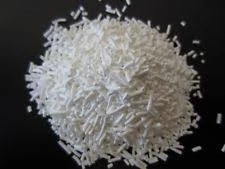
Effective Bread Preservatives for Freshness and Shelf Life
The Role of Preservatives in Bread Ensuring Freshness and Safety
Bread is one of the oldest and most widely consumed staple foods across the globe. While the ancient methods of bread-making relied on simple ingredients like flour, water, and salt, the industrialization of food production has introduced a plethora of additives, particularly preservatives. These substances play a crucial role in extending the shelf life of bread, enhancing its safety, flavor, and texture.
The Role of Preservatives in Bread Ensuring Freshness and Safety
Calcium propionate, perhaps the most prevalent bread preservative, acts primarily as an antifungal agent. By inhibiting mold growth, it allows breads to remain fresh on store shelves and in consumers' homes for a longer duration. This is particularly important given that mold can develop rapidly in the presence of moisture. Similarly, sorbic acid provides protection against yeast and mold, ensuring that the bread maintains its appealing texture and taste throughout its shelf life.
bread preservatives

Ascorbic acid, on the other hand, is not only a preservative but also a dough conditioner. It enhances the dough's elasticity and strength, leading to a better crumb structure and overall appearance. This dual role means that not only does the bread last longer, but it also remains pleasant to eat.
However, the use of preservatives in bread has sparked debates among health-conscious consumers. Some argue that the synthetic nature of these additives may pose health risks, leading to a demand for clean-label products that are free from artificial preservatives. This has prompted many bakeries to explore alternative preservation methods, such as natural preservatives like vinegar or honey, which can also extend shelf life without compromising health.
In conclusion, preservatives play an essential role in modern bread production, ensuring that our loaves remain safe and enjoyable for extended periods. While the concern over synthetic additives is valid, it is equally important to recognize the benefits they provide in terms of food safety and convenience. As the food industry continues to evolve, the balance between shelf life, safety, and natural ingredients will remain a pivotal focus in bread-making. Ultimately, the choice between preservatives and natural alternatives lies in the hands of consumers, who can drive the market towards healthier options that meet their preferences.
-
Comprehensive Guide to Acetic Acid as Preservative: Benefits, Uses & Future TrendsNewsNov.24,2025
-
What Is a Food Additive? Global Insights, Applications & Future TrendsNewsNov.24,2025
-
968 Sweetener: The Modern Solution for Health-Conscious SweeteningNewsNov.23,2025
-
Discover the Benefits and Uses of 965 Sweetener (Erythritol) | Tenger ChemicalNewsNov.23,2025
-
961 Sweetener - A Next-Gen Sugar Alternative for Health and IndustryNewsNov.23,2025
-
Understanding 960 Sweetener: The Modern Sugar Alternative for Health and IndustryNewsNov.22,2025
-
Everything You Need to Know About 955 950 Sweeteners – Benefits, Uses, and TrendsNewsNov.22,2025
Hebei Tenger Chemical Technology Co., Ltd. focuses on the chemical industry and is committed to the export service of chemical raw materials.
-

view more DiethanolisopropanolamineIn the ever-growing field of chemical solutions, diethanolisopropanolamine (DEIPA) stands out as a versatile and important compound. Due to its unique chemical structure and properties, DEIPA is of interest to various industries including construction, personal care, and agriculture. -

view more TriisopropanolamineTriisopropanolamine (TIPA) alkanol amine substance, is a kind of alcohol amine compound with amino and alcohol hydroxyl, and because of its molecules contains both amino and hydroxyl. -

view more Tetramethyl Thiuram DisulfideTetramethyl thiuram disulfide, also known as TMTD, is a white to light-yellow powder with a distinct sulfur-like odor. It is soluble in organic solvents such as benzene, acetone, and ethyl acetate, making it highly versatile for use in different formulations. TMTD is known for its excellent vulcanization acceleration properties, which makes it a key ingredient in the production of rubber products. Additionally, it acts as an effective fungicide and bactericide, making it valuable in agricultural applications. Its high purity and stability ensure consistent performance, making it a preferred choice for manufacturers across various industries.





